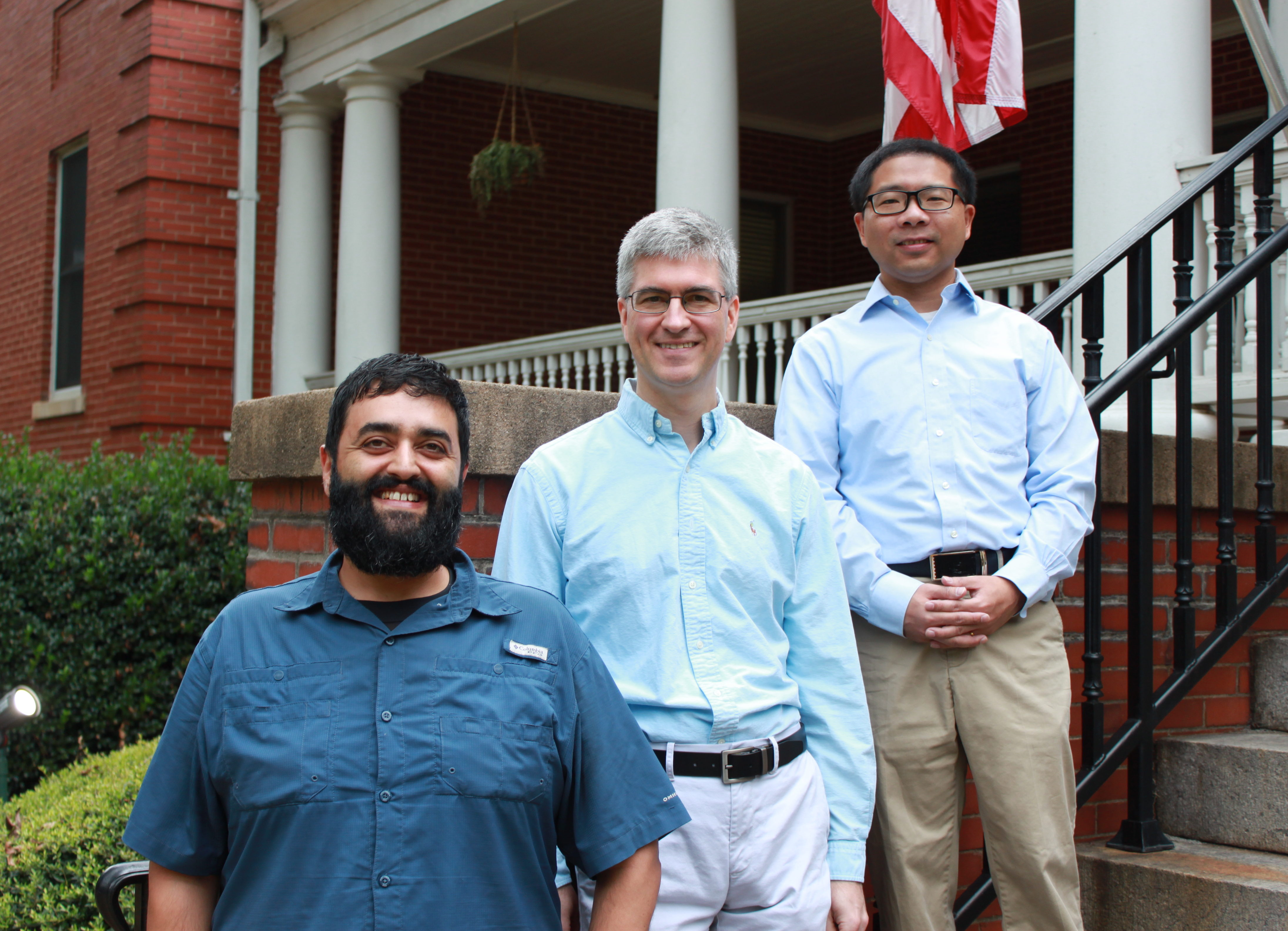The University of Georgia has signed a contract with the National Institutes of Health to develop a new, more advanced influenza vaccine designed to protect against multiple strains of influenza virus in a single dose. The total funding could be up to $130 million over seven years if all contract options are exercised.
UGA will lead one of NIH’s new prestigious Collaborative Influenza Vaccine Innovation Centers (CIVICs) and collaborate with teams from 14 other universities and research institutes to create and test new vaccines that may one day replace seasonal vaccines administered every year during flu season.
Ted M. Ross, Georgia Research Alliance Eminent Scholar of Infectious Diseases in UGA’s College of Veterinary Medicine and director of UGA’s Center for Vaccines and Immunology, will lead a team of UGA faculty, including three epidemiology faculty members from UGA’s College of Public Health.
Justin Bahl, an associate professor of epidemiology and biostatistics, is leading the modeling and data analysis group.
Targeting high-risk populations
The project will include specific attention to vaccine research for high-risk populations.
“The main goal of our project is to identify vaccines that are broadly protective, meaning that they will protect people against most of the versions of the influenza virus that infect humans,” said Ross. “But we are particularly interested in developing a vaccine that protects the most vulnerable people in our population, including children, the elderly or people with weakened immune systems.”
Most people infected with influenza will recover, but it can be deadly.
During the 2017-2018 flu season, for example, influenza killed more than twice the number of people who died in motor vehicle accidents in the U.S. An estimated 48.8 million people were infected, 959,000 were hospitalized and about 79,400 died from influenza, according to the Centers for Disease Control and Prevention.
“People with weakened immune systems, such as those who are undergoing chemotherapy treatments, are particularly vulnerable to influenza, but so are people who are obese, diabetic or have heart disease,” Ross said. “Influenza can also be dangerous for pregnant women or women who have recently given birth.”
“We need better vaccines to protect these populations because our seasonal vaccines are not always as effective as we would like them to be,” he said.
Hard to pivot vaccine production
Every year, epidemiologists around the world monitor the influenza viruses circulating in the human population. About eight to nine months in advance of the next influenza season, public health scientists use this data to select influenza virus strains to make the annual seasonal influenza vaccine.
It then takes many months and considerable amounts of money to make the annual seasonal influenza vaccine. Unfortunately, the manufacturing process cannot quickly pivot to a different vaccine if a new strain emerges during that time period.
Ross and his collaborators will use a computational algorithm to analyze all of the genetic versions of a particular flu type and bundle the results into a single molecule—like taking every novel in a library and combining them into one giant book.
The researchers can then use these large molecules to create vaccines that recognize most or all the different iterations of the influenza virus, meaning that one dose could protect against many strains over several years.
The team
Ross will direct the program in conjunction with Stacey Schultz-Cherry, an infectious disease expert at St. Jude Children’s Research Hospital. They will lead a team of clinicians, immunologists, virologists, data managers and statisticians to identify the most promising vaccine candidates for human trials.
Team members from UGA and St. Jude will be joined by researchers from New York University; New York University – Langone Health; the University of California, Los Angeles; the University of California, Santa Cruz; the University of North Carolina; the Ragon Institute; the Icahn School of Medicine at Mt. Sinai; the University of Texas; Emory University; the Georgia Institute of Technology; the University of Rochester; the University of Melbourne; and the Mayo Clinic.
This project has been funded by the National Institute of Allergy and Infectious Diseases, a component of the NIH, Department of Health and Human Services, under contract 75N93019C00060.
Posted on September 30, 2019.
By James Hataway; Contributions by Lauren Baggett
Read the news release on UGA Today.






